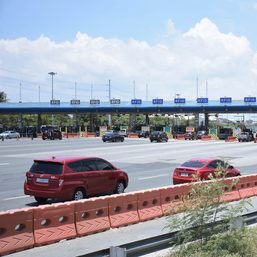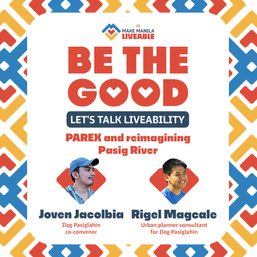SUMMARY
This is AI generated summarization, which may have errors. For context, always refer to the full article.
![[Be The Good] PAREX and the power of communities](https://www.rappler.com/tachyon/2024/03/parex-protest-newsletter-mar-21-2024.jpg)
On the Feast Day of Saint Joseph, the nuns of Hospicio de San Jose in Manila had one more reason to celebrate. They had just received word that Filipino tycoon Ramon Ang had decided to scrap his Pasig River Expressway (PAREX) project with the government.
Hospicio de San Jose is located right on Pasig River, on a tiny island that can only be accessed via Ayala Bridge. It has stood there since 1810, run by the Daughters of Charity of Saint Vincent de Paul, serving as refuge to abused women, abandoned babies, children, and the elderly.
For Hospicio de San Jose, PAREX was an existential threat. Construction of the expansive tollway would have brought disruption and noise to a community meant to provide relief, solace, and healing.

Joven Jacolbia, co-convenor of Ilog Pasiglahin (and a former Rappler intern), told us that the sisters and those they care for were overjoyed at Ang’s change of heart. Ilog Pasiglahin, a group pushing for the sustainable revitalization of Pasig River, has long been in touch with the Hospicio de San Jose community, listening to their concerns and fears about moves to redevelop the river.
“Katuwa (So heartening), you can really see how important this win is for local communities,” he told Rappler and other civil society groups in a group chat.
And a win it is.
Ang himself cited how public pressure, at least partially, led him to abandon the project.
“Sinasabi [ng] maraming tao na ayaw nila ‘yan…hindi magandang tingnan or whatever. Narinig mo kung tinuloy ko? Hindi na. Kasi very sensitive din kami. Nakikinig kami sa pulso ng bayan,” he said, according to the story of our business reporter, Ralf Rivas.
(People said they don’t like it…it doesn’t look good or whatever. Did you hear that I pushed through with it? I did not. We are very sensitive too. We listen to the pulse of the nation.)
Ralf covered the press conference and it was, in fact, in the course of answering his question that Ang revealed his PAREX decision.
Of course, Ang might have other reasons for canceling PAREX. It could be the need to focus resources on other projects, maybe even pressure from more powerful voices.
But it can’t be denied that civil society groups were relentless in voicing their opposition to PAREX. Environmentalists, cyclists, housing rights advocates, active transport advocates, heritage conservationists, academe, some religious leaders, and more came together to say #NoToPAREX, attending meetings with government officials, holding protest events, speaking to media, and more.
Of course, vigilance is still necessary. Groups are still waiting for San Miguel Corporation to withdraw all PAREX-related permit applications with various government agencies.
A week ago, civil society groups mobilized for a different urban concern: pushing for safer bike lanes in Metro Manila. Cycling groups and active transport groups told Rappler about their March 11 meeting with the Metropolitan Manila Development Authority. I attended that public consultation where MMDA Chairperson Romando Artes asked to “live in reality” where bi-directional bike lanes on EDSA cannot possibly be accommodated because, among other establishments, there were several car dealerships along the major thoroughfare.
There are over 182,000 views on Instagram and YouTube of that video I took of Artes, and hundreds of comments – most thumbing down Artes’ position, some empathizing with him.
During this time, Rappler has been laying the groundwork for a movement that we want to launch this year: Make Manila Liveable.
We’ve teamed up with 11 civil society groups involved in active transport, urban planning, housing, persons with disabilities’ rights, disaster resilience, and heritage conservation to report better on liveability and ensure community concerns reach the ears of government officials.
We’re doing this pilot in our own backyard first, and, with enough support, hope to expand this to more Philippine cities.
Ilog Pasiglahin is part of this movement. So are AltMobilityPH and Move As One Coalition, the active transport groups who told us about the MMDA public consultation. Kasali Tayo, the youth group pushing for persons with disabilities’ rights, is also with us. We had previously teamed up with them to tell the story of how inaccessible the Metro Manila train system is for persons with disabilities.
There are many more community issues out there linked to quality of life in Philippine cities. With the power of journalism, we hope to tell stories about them, and make our cities more liveable. – Rappler.com
Be The Good is a newsletter that comes out every other Wednesday. We deliver updates straight to your inbox on how journalism and communities can work together for impact.
To subscribe, follow the #FactsFirstPH movement or visit rappler.com/profile and click the Newsletters tab. Create a Rappler account that helps you manage your newsletter subscriptions.
Add a comment
How does this make you feel?




There are no comments yet. Add your comment to start the conversation.